My name is François Deniau, I was born near Paris in 1969 and sports have always been part of my life. I always had to do some physical activities at some point and started to wrestle with my older brother and then started judo when I was 11. I discovered in the same time the underwater world. Beside judo and jiu-jitsu I integrated nutrition and welness practice at the age of 15. I see now jiu-jitsu and sports in general as an holistic discipline, a lifestyle.
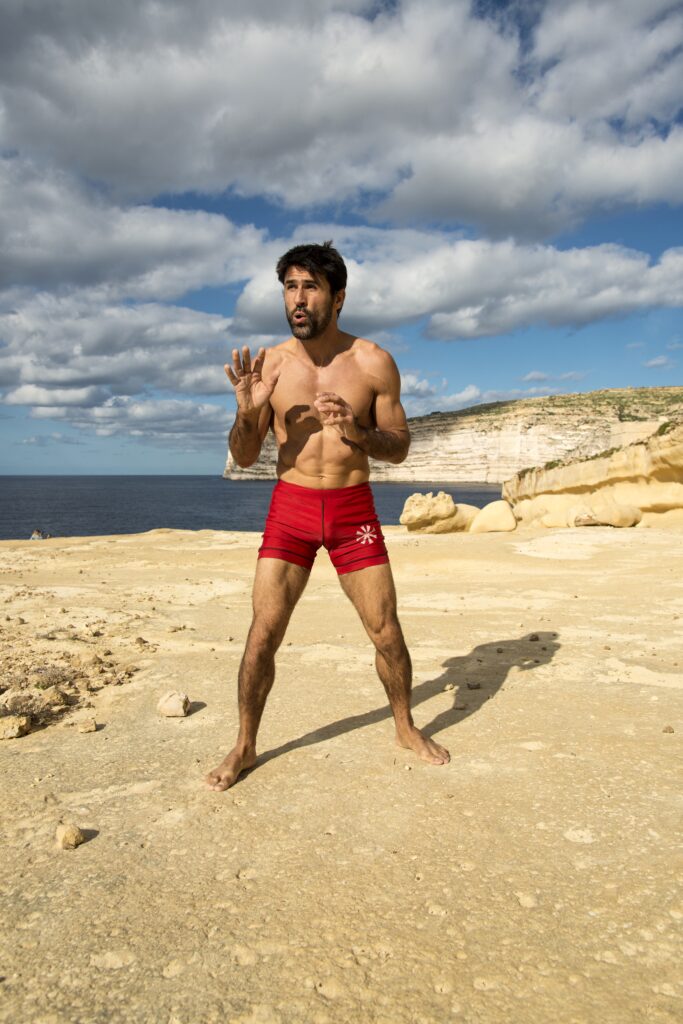
Today I am glad to share this experience in Gozo (Malta) and in France.
Wrestling sports such as jiu-jitsu require a high level of neural connectivity and cognitive processing. Athletes must be able to react quickly and adapt to changing situations, making split-second decisions about their movements and strategies. This requires a highly developed neural network, with efficient communication between different areas of the brain.
For that reason I beleive the practice of jiu-jitsu can improve cognitive function over time. Studies have shown that regular exercise, including martial arts training, can improve memory, attention, and executive function, all of which are important for overall cognitive performance.
The practice of jiu-jitsu and other wrestling sports are very beneficial for everyone personnal development. In ancient times it was not rare that great philosophers were also good wrestlers and promote the practice of wrestling, gymnastic beside arts and science at a early age (see ici). The discipline and focus required for these sports can help individuals develop a deeper sense of self-awareness and self-control, as well as a greater appreciation for the interconnectedness of all things.
In other words the important thing is to find balance, keep our mind open to new ways and connect the dots, walk the walk…
I discover snorkeling/freediving around 10, almost the same time I started judo and jiu-jitsu. As I was living in the suburb of Paris I was going to public school and had to defend myself many times. At a certain point it was stressful to go to school for this reason. Violence was part of the daily life in the suburbs, especially where I was (Cergy-Pontoise in the north of Paris). So I am greatful to my grand parents who took me to the sea every summer and winter holidays and to my judo teachers. I was entering the dojo with a deep respect. It helped me to get more confident, and to become rooted in reality as I was more the type of kid who could stay all day long doing drawings or anything in my own bubble. As my parents divorced I was 3, I had to find my own ways. Changing school a lot, moving from place to place, eventually placed into a child house in the mountains, in a big farm at 1000m altitude in the Alps from 7 to 10 that was the best thing. When I came back to Paris in the summer 1981 my grand parents took me by the sea, to Concarneau (in Britany) for the summer holidays. I had a mask, a pair of fins and a snorkel with me. When I discover the underwater world, it became instantly one of my biggest passion and was everyday for one month in the water…
Then I started judo. My first judo competition was in 1984, and I carried on… it taught me to set goals and to achieve them. 10 years after I trained in England for one year with the british team. I was just an Erasmus student and “I have been sent to Coventry” where was the “Neil Adams Club” (Neil Adams is an Olympic champion who trained the national team with full time athletes I had the chance to spar with all year long). So it was a game changing in my sport life. Maybe he doesn’t know how… I am so grateful to him. Thank you Neil!
In parallel I was going to swimming pools, in the lake of Annecy (I moved from Paris to the Alps I was 15) or by the sea as much as I could, there were no freediving schools at this time. Freediving became popular after the “Big Blue” movie. When I was 18 I spent a month in Greece with some friends sleeping on the beach and snorkeling in the Cyclade Islands. The Eric Serra music was always around, going to 15 meters deep was like incredible for anyone, and the champions were like extra terrrestrials. Then I could travel to Australia and Japan… The deepest I went and still go is 40 meters thanks to the Blue School directed by Pierre Frolla in Monaco. I eventually did my instructor exam there in 2013. I never thought about competition in freediving and my only goal was to explore, being in the clear water with lots of things to see and eventually discover things underwater… Strangely I could only share this vision with a World class athlete (out of competition) who is a unique explorer, passionate with shipwrecks and with a 14 liters lung capacity : Michel Nox and the noxdiving.com association.
The discovery of bjj took me then to a deeper and wider vision. I was competing in bjj first without any affiliation, it was the pionneer times of bjj… And then from 2006 to 2016 under Megaton Wellington Dias / Gracie Humaita from, traveling 5 times to Brazil and 5 times in the US, in Europe, Abu Dhabi, Japan… I didn’t expect all this happened and I am glad I met so many friends, training partners & masters…
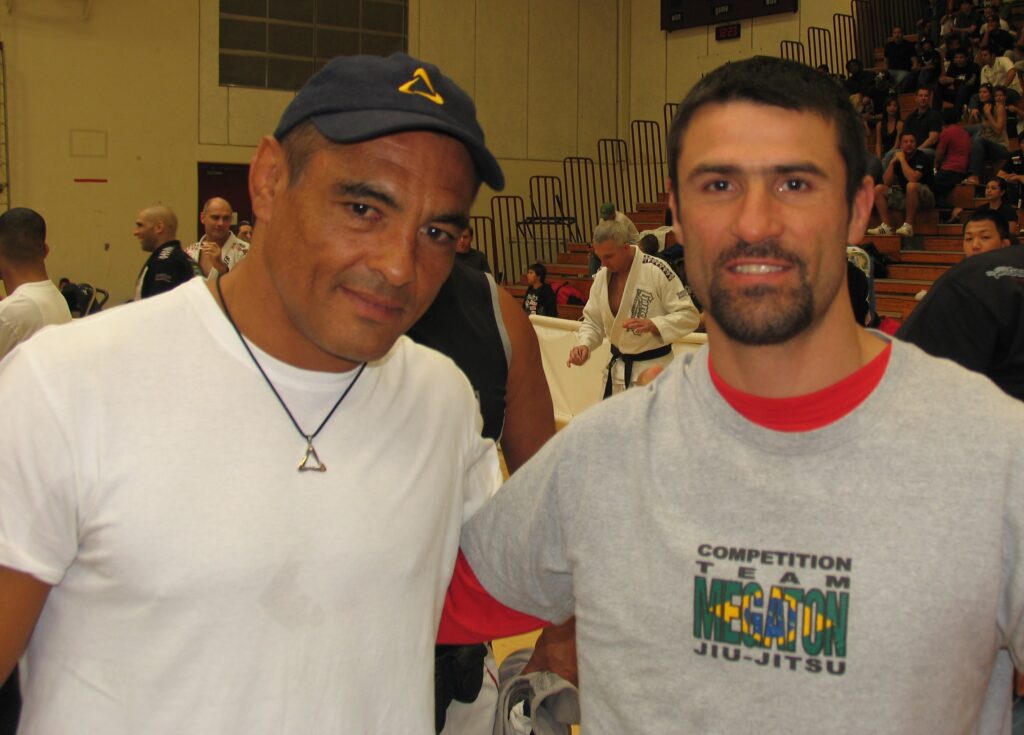
Being coached by Rolker Gracie, winning my fight in Rio de Janeiro state Championship under the guidance and coaching of Rolker and Royler Gracie was a great honour. Being able even to roll with Royler and visit his father with Rolker was the greatest honour ever. Then the encounter of the Great Master Master Helio Gracie in person. That was the Greatest honour and never expected. Thank you for this inestimable legacy Ooossss
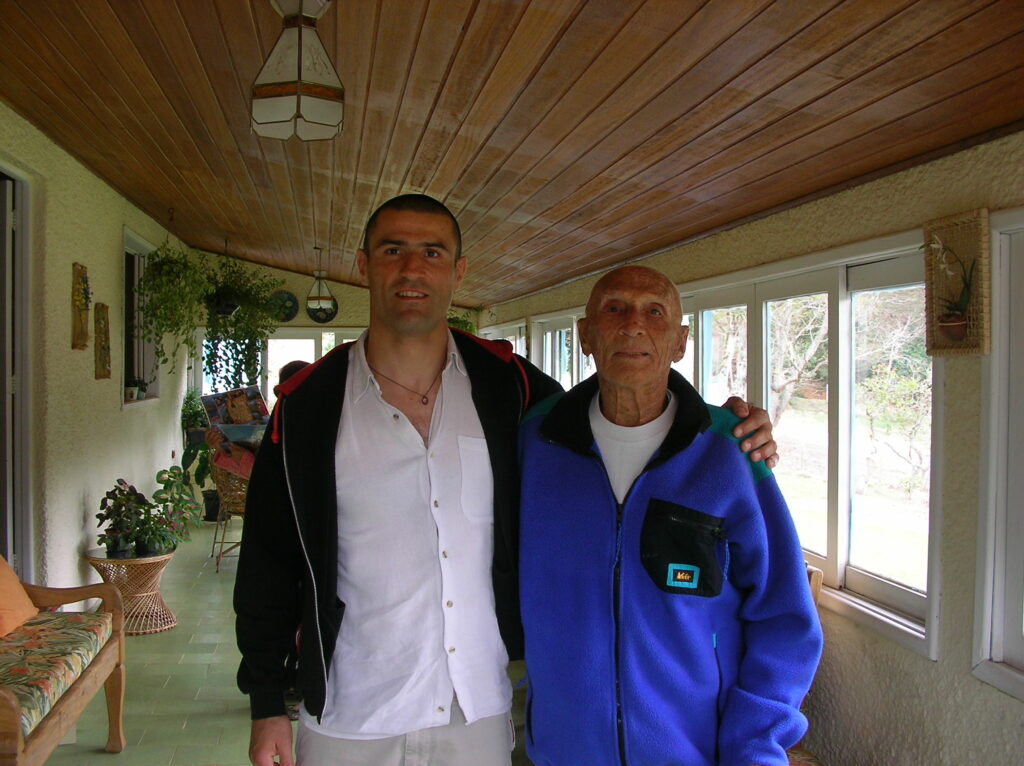
I will never forget this day. I thank my family and all the teachers who put me on that way. Here is a link to know more about Helio Gracie.
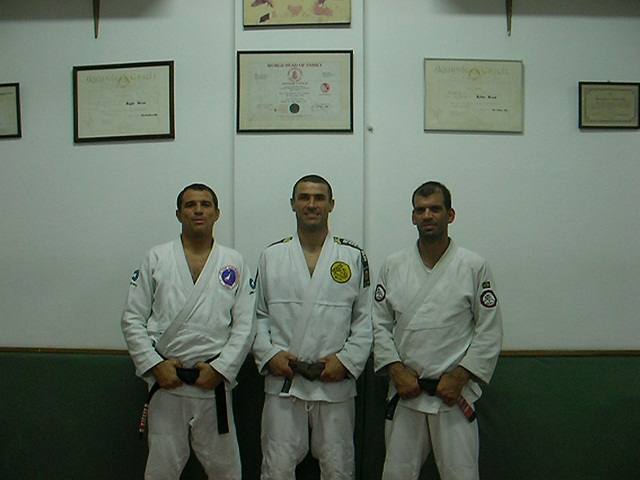
In 2012 when I had an injury on my left knee (a torn meniscus) because I was training too much the half guard on my favourite side. So I changed that and completly healed with regular swimming (when 2 different doctors urge me to do a surgery). The most spectacular healing effect of water was in 2016 when I recover with swimming from 8 fractures on my ankles (while doing canyoning). I was totally healed 3 months after my accident because I went as soon as possible in the sea, starting with the contact of water, then bathing, moving slowly and day after day swimming short distances until I could swim 8 kilometers at once, discovering and still practicing since long distances swimming. If you think in terms of energy, we human are dealing with that chemistry. This amount of energy can destroy us or can be stored and used in the most effective way. The purpose of martial arts is to make us the master of that energy and be able to use the flow of energy. But who doesn’t make any mistakes? I may fall again an again until I make it… getting the understanding of the flow. This is deep. That is where meet the physical and the spiritual, the concept of energy. That goes as far as the book of 5 rings (Miyamoto Musashi, around 1645) for example or any other ways we can approach this idea…
2-FREEDIVING
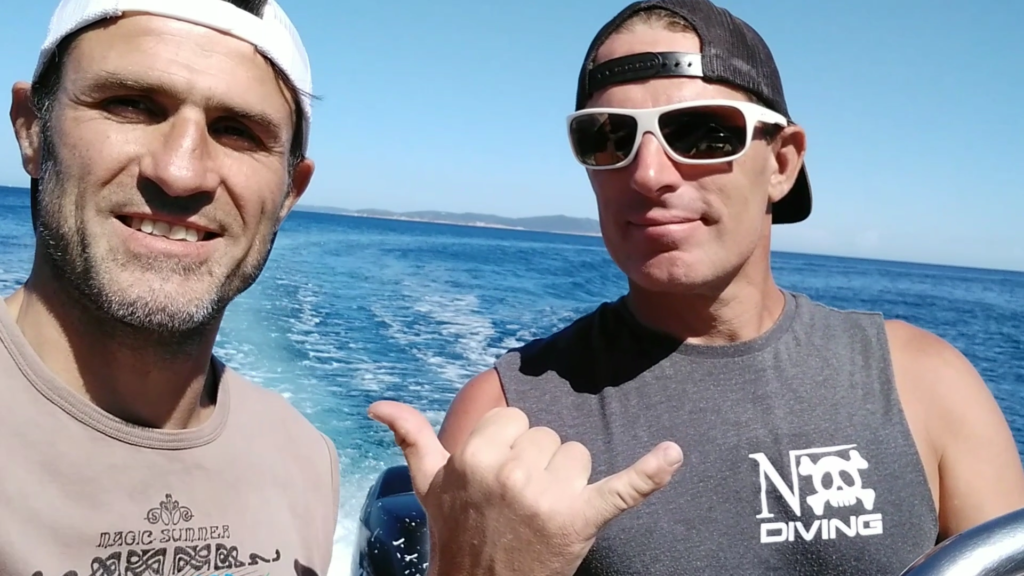
A big turn in my freediving exploration was my encounter with Michel Nox. He introduce me to his world, wich is out of the competition and completely into exploration. I think Michel is a phenomenon like Jacques Mayol, but without the yoga and mediatic aspects… Michel has opened a way of freediving that is merely a non competitive way… In short, to explain the way freediving took off: to start in his time, Jacques Mayol was not totally understood, he was not going in the first hand for competition but then I am not sure about his real motivation… Being the first to go beyond what science thought was human limits (at his own risks) and the first to reach 100 meters deep he opened a new door, the era of records and “personnal bests”… And and those who inherited from his knowledge went into setting even more world records, especially in no limits, until it was not anymore part of it because of fatal accidents… Nowadays the only reference in freediving is competition. The only protocoles and ways of doing freediving are inspired by competitors where the only thing you will see is indeed this “Big Blue” and a line. Even games are turned in a competitive way. Everything is around a competitive approach. I don’t criticize competition, I am just saying that amazingly I found it is the only approach, and having doing competition most of my life in judo and bjj I know quite a bit about the mentality of competition. So I never wanted to do,competition in freediving, I did it in judo and bjj because of a personnal process, but in the water to me it never attracted me. I was happy enough to feel the glide to 40 meters, exploring caves, chemney, shipwrecks and more. A curiosity we share with friends. It is something you share with passion and also for safety. I am glad to have met Michel who, in spite in can go to 100 meters in CWT (means constant weight or without any help, just muscular strength) without a line, like a human submarine, for minutes, 4 or 5, diving where no one usualy go, even at nights, without any mouthfill as he has an incredible and probably unique ability to equilize the pressure naturally, without putting air on in mouth or other techniques (he has still a bit of air in his lungs, or residual volume limit at 70 meters deep when a normal person has this limit around 30 or 40 meters deep). And why doing competition, why putting more stress, less pleasure, for a number you display on social medias? So there is still lots to explore and to share about this underwater world and its benefits for sports such as bjj :
Combining the practice of jiu-jitsu and freediving can have a number of benefits, including:
- Improved mental and physical fitness: Both jiu-jitsu and freediving require a high level of physical and mental conditioning. Practicing both can lead to improved strength, endurance, and cardiovascular health, as well as improved mental focus, concentration, and relaxation.
- Increased body awareness: Both jiu-jitsu and freediving require a high level of body awareness and control. Practicing both can lead to an increased understanding of one’s body, as well as improved coordination, balance, and proprioception.
- Improved breathing techniques: Both jiu-jitsu and freediving require controlled breathing techniques. Combining the two practices can lead to a deeper understanding of breathing and improved breath control, which can be beneficial not only in these activities but also in daily life.
- Increased confidence and resilience: Both jiu-jitsu and freediving require a certain level of risk-taking and mental fortitude. Practicing both can lead to increased confidence, resilience, and the ability to stay calm and focused under pressure.
- Expanded understanding of martial arts: Combining jiu-jitsu with freediving can expand one’s understanding of martial arts beyond the traditional gym setting, and can help to bring a greater awareness of one’s body, the environment, and the interconnectedness of all things.
Combining the practice of jiu-jitsu and freediving has a great benefit. It helps me with keeping my body fit, flexible and opens my rib cage, helps with cardio etc. I cannot tell with words the advantage of this combinasion. It is like merging something invisible with something dense, puting more flow, slowing down my heart beat, increasing my resilience and calm… Soon with Michel we will create a freediving school in Gozo with a non competitive approach, under the flags PFI (for “Performance Freediving Diving” wich is strangely doesn’t have a competitive vision in freediving) and Nox Diving… I still don’t know how I go call this school. I think it will be part of the existing BJJ association.
3- CROSS TRAINING : ginastica natural, capoeira, yoga, breathing techniques…
Ginástica Natural is a form of physical training developed by Brazilian Jiu-Jitsu expert Alvaro Romano. It combines elements of yoga, Brazilian Jiu-Jitsu, and other martial arts, as well as animal movements, to improve flexibility, mobility, strength, and overall fitness. The practice emphasizes the use of natural movements that mimic those of animals, such as crawling, rolling, and balancing, to develop body awareness and coordination. It can be practiced by people of all ages and fitness levels and has become increasingly popular as a form of functional fitness training.
Conscious breathing is the practice of intentionally focusing on one’s breath to promote relaxation, stress relief, and increased mindfulness. It involves paying attention to the sensation of the breath as it moves in and out of the body, and consciously controlling its rhythm and depth. This can be done through various techniques, such as deep breathing, diaphragmatic breathing, or alternate nostril breathing, among others. Conscious breathing is often used in meditation, yoga, and other mindfulness practices, but it can also be practiced at any time, anywhere, as a quick and effective way to calm the mind and reduce stress. Regular practice of conscious breathing has been shown to have numerous physical and mental health benefits, such as reducing anxiety, improving sleep, lowering blood pressure, and increasing overall well-being.
There are many disciplines beneficial to our jiu-jitsu journey promoting strength, flexibility, cardiovascular health, mindfulness, and relaxation,
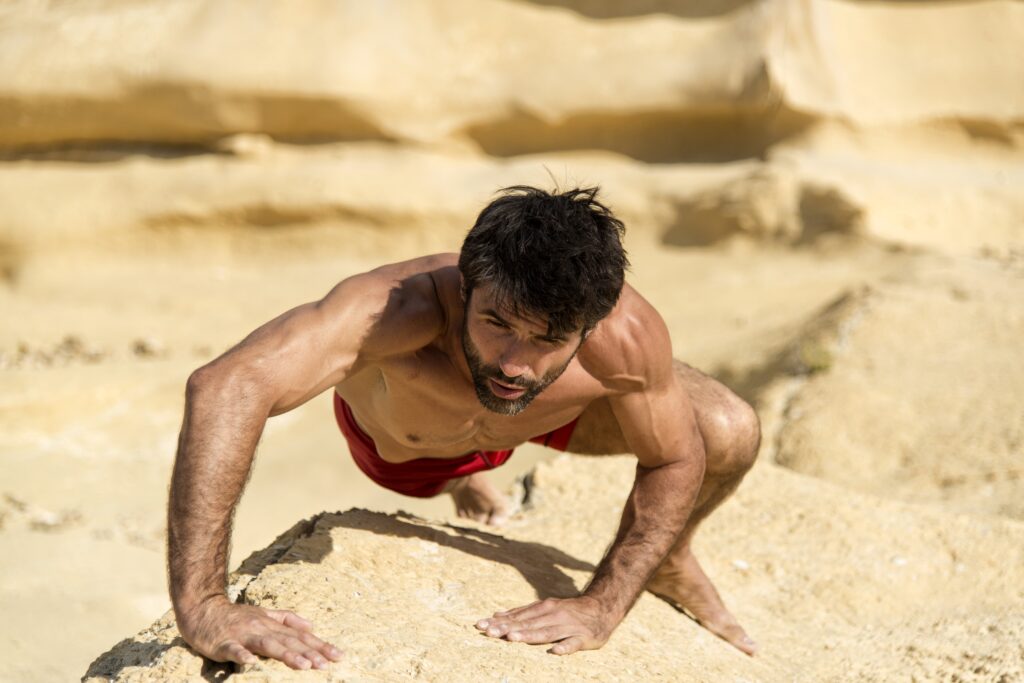


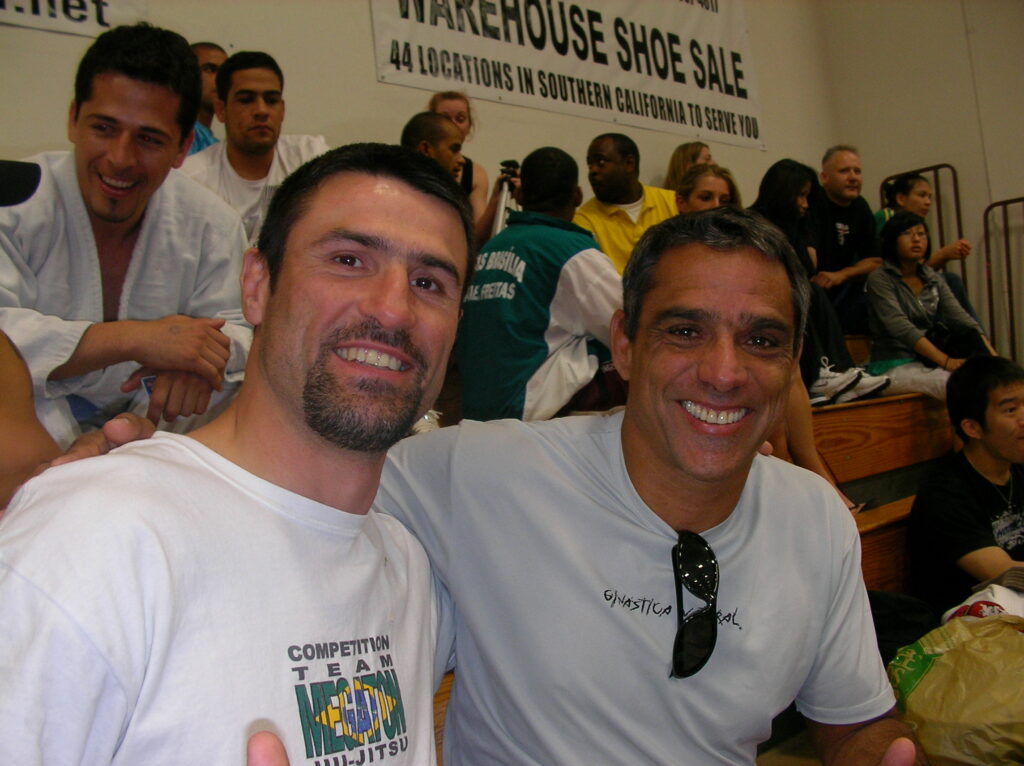
Combining Jiu-Jitsu with Ginástica, Yoga and other disciplines such as Freediving can offer a holistic approach to physical and mental well-being, promoting physical fitness, mental clarity and focus, breathing capacity and control, stress reduction and relaxation, and a deeper mind-body connection.
It is an example of a holistic approach to sports. Jiu-Jitsu is my tool to unite everything and find balance, getting out of my confort zone and keep discovering things, getting rid of ancient ideas, evoluating like the eagle is taking off his old feathers…
Thank you for reading me so far. You are absolutely welcome to our humble dojo in Xaghra (Island of Gozo, Malta).
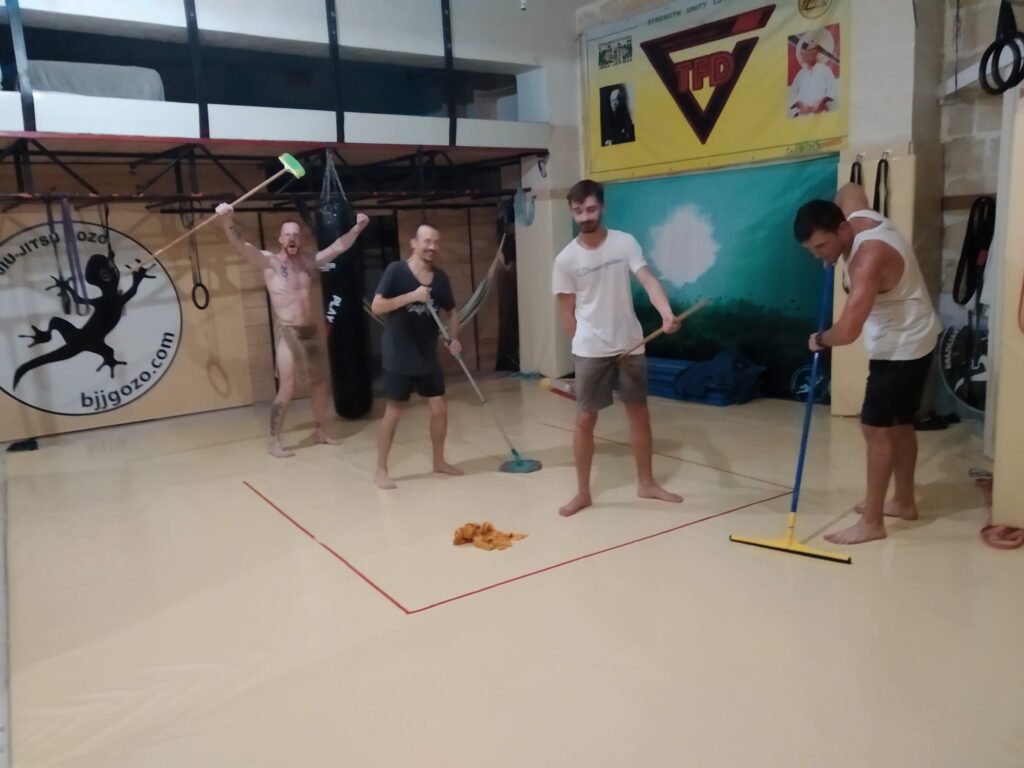
François Deniau
Aknowlegement to my family and my teachers :
Jacques Noris (Judo Club of Cergy) 1982 to 1986
Marc Mermet (Judo Club Dauphinois) 1986-1989
Thierry Oviz (Judo Club d’Echirolles) 1989-1991
Philippe Petit (GUC JCD Grenoble) 1991-1992
Jean-Pierre Millon (GUC JCD Grenoble) 1992-1995
Neil Adams (Neil Adams Club Coventry, England) 1993-1994
Military service in Grenoble, so I could train at the GUC JCD in 1994-1995
Daniel Ray (CS DOUA, Villeurbanne) 1995-2000
Jean-Paul Pagnoud (CS DOUA, Villeurbanne) 1995-2000
Ricardo Carvalho (Team Edson Carvalho) 2003
Cid Borges (Team Edson Carvalho) 2003- 2011
Wellington “Megaton” Dias / Royler Gracie (Team Gracie Humaita) 2005-2017
Luciana Dias / Royler Gracie (Team Gracie Humaita) 2005-2017

